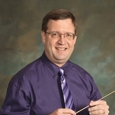Education, like popular culture, has had its share of fads. Early in my career I would look with some disdain on veteran teachers who would sigh and mutter, “this too shall pass” whenever a new concept was introduced at our school. Now, as an almost 30-year veteran, I am much more sympathetic. During my career I have seen many fads come and go and sometimes come again. These include:
• Alternative or Authentic Assessments
• Block Scheduling
• Career Education
• Character Education
• Common Core
• Cooperative Learning
• Creative Thinking
• Critical Thinking
• Cultural Literacy
• Differentiated Instruction and Individualized Instruction
• Experiential Learning
• Gifted Education
• Learning Centers
• Learning Styles
• Left Brain-Right Brain Strategies
• Metacognition
• Multi-Culturalism
• Multiple Intelligences
• No Child Left Behind
• Outcome-Based Education
• Peer Tutoring
• Portfolio-Based Assessment
• Problem-Solving
• Reading Across the Curriculum
• Restructuring
• Rubric
• School Choice
• School-To-Work
• Self-Esteem
• Standards Based Instruction
• Thematic Instruction
• Tracking and Ability Grouping
• Values Clarification
• Whole Language vs. Phonics
• Writing Across the Curriculum
There is nothing necessarily wrong with many of the educational fads that I’ve seen, and in fact, many have their good points. I’ve even adapted several of them – critical thinking being one – to my music instruction. Also, as any music teacher can tell you, many of the supposedly new-fangled ideas are already a natural, integrated part of a band’s instructional DNA.
What disturbs me about so many of these fads is that they make good educational instruction more difficult than it has to be. Educational fads are merely frameworks for much more important concepts that, if forgotten, would render any new educational movement worthless. I have labored through in-service sessions where educational miracle cures were presented, while all I can think about is escaping and getting back to work. I have also sat in on teachers’ meetings where all we do is sit around and talk about problems without really doing anything about them. We would all be better off if we went to our respective classrooms and got back to work. I was sitting in such a meeting earlier this year when a three-word phrase popped into my head: “Do your job!”
I was a little surprised when this short phrase made its way into my consciousness. Primarily this was because I first heard it used by Nick Saban, head football coach at the University of Alabama. As an Auburn fan, I try not to have too many things Alabama floating around in my head. As it turns out, Saban borrowed the phrase from colleague Bill Belichick, coach of the New England Patriots. Since Belichick took over the New England Patriots in 2000, the team has enjoyed 14 straight winning seasons, 12 playoff appearances, six AFC championships, and four Super Bowls.
Could this simple, terse phrase possibly be the key to improving education? I mean, if it can help someone win four Super Bowls, couldn’t it be of benefit in another context? And what exactly does it mean anyway?
Roughly translated, “do your job” means being prepared, working hard, paying attention to the details, and putting the team first. It means knowing one’s role within the team and maintaining focus without becoming distracted by outside factors. Belichick has been known to utter these words (in various states of emotion) to his players when a game has gone haywire, and his players are on the verge of being overwhelmed. Patriots player Julian Edelman says that doing your job is “just like someone who’s working in a coal mine or on a construction site. You bring your hard hat and your lunch to work and just shut up and do your job.”
Maybe that’s what we need more of in education: dedicated, focused educators who know their subject matter like no one else and teach it with a caring, relentless passion that will not rest until all of their students succeed. Put them all together, and you have quite a team, regardless of the educational dressing one wants to put on it.
As for our bands, the application of “do your job” is easily adapted from sports to band. Just recently, I have found that it can really provide focus in times of uncertainty. The last two winters in Arkansas have been harsh, resulting in endless school cancellations during the weeks and days leading up to our concert contest. Trying to get a band prepared under such conditions can be overwhelming when looking at the big picture, but when the situation is broken down into small pieces where all students are encouraged strongly to “do their job” by learning their music individually, the task seems less daunting. “Do your job” makes a fine mantra in such circumstances.
In fact, repeating it over and over again may help you make it through your next in-service session or teacher’s meeting. Furthermore, you may decide to hit the speaker circuit and provide an in-service session titled “Do Your Job: The Steps to Educational Reform.” What’s one more fad going to hurt? l






